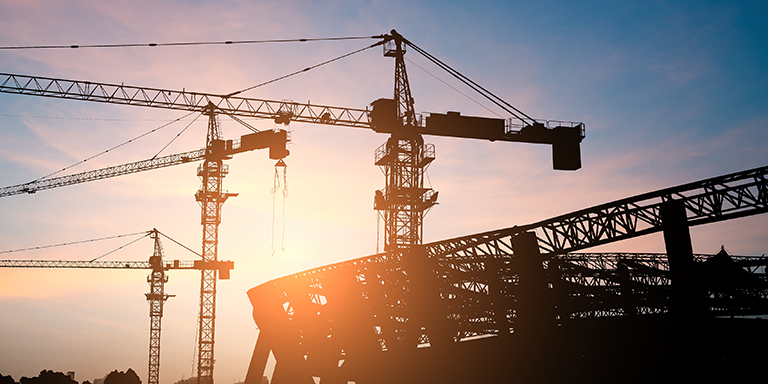
The annual International Construction Cost Index (ICC) by global design and consultancy organisation Arcadis indicated that social unrest in the second half of 2019 and COVID-19 this year have hit the construction industry hard, while environmentally friendly practices need to be more widely integrated to ensure a carbon-neutral future.The construction market declined 7% year-on-year in 2019 and is facing a continuous downward trend in the first two quarters of 2020. Francis Au, Arcadis’ Head of Cost & Commercial Management for the Greater Bay Area, outlines the challenges ahead and the road to recovery.From project delays to sourcing materials and labour, the outbreak of COVID-19 looks certain to have a long-term impact on the construction market. How can the industry bounce back?
Project delays were caused by difficulties in sourcing materials and labour only in the early stage but the situation is gradually improving due to the recovery of transportation and logistics. Projects may slow down resulting from the six-month extension of the building covenant following the virus outbreak.
Long term, the industry must adopt smart ways to increase productivity, and control costs to create profits for investing in sustainability measures and solutions.How can they do that?
One way is by adopting less labour-intensive construction methods such as MiC [modular integrated construction] although this may induce additional costs at the beginning before the industry gets familiar with the method. Using Building Information Modelling (BIM) and Design for Manufacture and Assembly (DfMA) for design, planning and manufacturing can improve efficiency. All these measures can also offer better controls on material wastage.What positive steps has the Hong Kong construction industry taken to address sustainability?
There are incentives provided by the government, such as [allowances for] energy-saving and green measures as well as BEAM Plus (Hong Kong's initiative to offer independent assessments of building sustainability performance). The operating costs are reduced for buildings with sustainability features, and to gain recognition in the property market, many private developers are willing to spend money on sustainability. Arcadis has been commissioned by the Hong Kong Green Building Council to develop a Hong Kong Smart Green Building best practice guidebook. What do you hope it can achieve?
The intended outcome is to provide a practical guidebook with design and operation strategies for the evolution of smart green buildings. Our hope is that the guidebook will raise awareness of sustainable construction among the public and practitioners, accelerate the development of a smart built environment and integrate the buildings of Hong Kong in the context of the Hong Kong Smart City Blueprint.Where do you see the construction industry in Hong Kong in 12 months’ time?
It may improve due to the declining impact of local social unrest and [recovery from the] outbreak of COVID-19. But it will also be shaped by ongoing political uncertainty, such as the China-US trade war. We predict that public and private sector investments may slightly pick up in 2021, and the Construction Industry Council is predicting a recovery from 2022. What are the reasons to be positive for the future of the Hong Kong construction industry?
There is a strong demand from the domestic sector and the planned land sale in 2020/2021 is more than double that of the previous year according to the Lands Department. Investing in infrastructure projects is one of the fiscal policy tools that the government will use to help the economy to recover from the impact from COVID-19.
Related link
Arcadis
